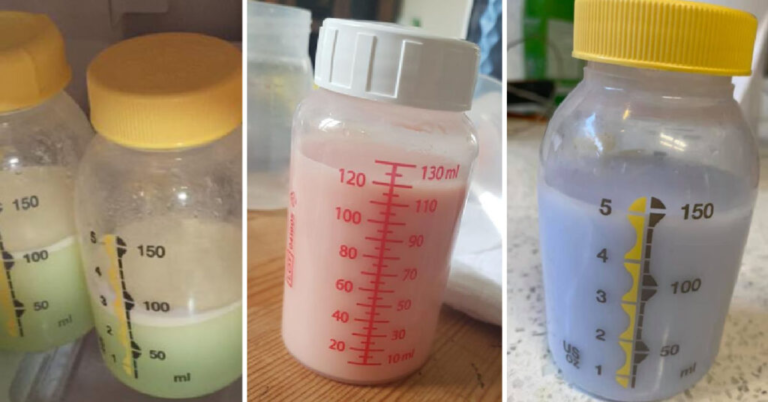Breastfeeding and Weight Loss: What New Moms Need to Know

Losing weight after pregnancy can be tough, but breastfeeding helps. It burns about 500-700 calories a day, aiding in weight loss. Many moms find breastfeeding, along with a healthy diet and exercise, helps them shed pounds.
For postpartum weight loss, a balanced lifestyle is key. New moms should eat at least 1,800 calories a day to support milk production and weight loss. Exercise and cutting calories together work better than either alone. Start with gentle movements soon after birth, and more intense workouts around 6-12 weeks.
Key Takeaways
- Breastfeeding can help new moms lose weight by burning approximately 500-700 calories per day.
- A safe and sustainable weight loss rate during breastfeeding is about one pound per week or four pounds per month.
- Combining exercise with calorie reduction is more effective for postpartum weight loss than either strategy alone.
- New moms should consume at least 1,800 calories per day to support milk production while losing weight.
- Gentle movement can be initiated soon after giving birth, with more vigorous exercise typically safe around 6-12 weeks postpartum.
- It’s essential to focus on a balanced lifestyle, including a healthy diet and regular exercise, for successful postpartum weight loss.
Understanding the Connection Between Breastfeeding and Weight Loss
Breastfeeding is a natural process that helps babies get the nutrients they need. It also affects the mother’s body, helping with weight loss. The link between breastfeeding and weight loss is complex, involving calories, hormones, and metabolism.
Research shows that breastfeeding can help mothers lose pregnancy weight. Exclusive breastfeeding for at least 3 months can lead to a 3.2-pound weight loss by 12 months postpartum.
Breastfeeding burns about 670 calories a day to make milk. This can help with weight loss, along with a healthy diet and exercise. Hormonal changes, like more prolactin, can also affect appetite and metabolism, aiding in weight loss. But, the relationship between breastfeeding and weight loss is not simple, and many women may not see weight loss until after they stop breastfeeding.
Studies have found that breastfeeding for at least 3 months can reduce postpartum weight retention. The MILK study, with 370 mother-infant dyads, showed that full breastfeeding for 3-6 months led to less postpartum weight retention. It suggests that promoting full breastfeeding past 3 months can help women return to their pre-pregnancy weight.
Here are some key findings on the connection between breastfeeding and weight loss:
- Exclusive breastfeeding for at least 3 months can result in a weight loss of 3.2 pounds at 12 months postpartum.
- Breastfeeding burns an average of 670 calories per day to produce milk.
- Hormonal changes during breastfeeding, such as the increase in prolactin, can affect appetite and metabolism, leading to weight loss.
- Interventions promoting full breastfeeding past 3 months may increase the likelihood of postpartum return to pre-pregnancy weight.
In conclusion, breastfeeding and weight loss are connected but complex. While breastfeeding can aid in weight loss, the relationship is not straightforward. Many women may not see weight loss until after they stop breastfeeding.
The Science Behind Postpartum Weight Loss While Nursing
Research shows that breastfeeding can help with postpartum weight loss. This is true for mothers who were overweight before pregnancy. Studies found that exclusive breastfeeding for at least 3 months led to a 3.2-pound weight loss at 12 months postpartum. This is compared to women who didn’t breastfeed or breastfed non-exclusively.
The science behind this is the changes in the body during breastfeeding. Nursing can burn an extra 500 to 700 calories daily. This, along with a healthy diet and exercise, aids in significant weight loss over time.
- A 6.0-percentage-point increase in the probability of returning to the same or lower BMI category postpartum for women who exclusively breastfed for at least 3 months.
- A 6.1-percentage-point increase in the probability of returning to pre-pregnancy weight or lower postpartum among women who exclusively breastfed for at least 3 months.
While nursing aids in weight loss, remember that every woman’s body is different. Results can vary. By understanding the science behind postpartum weight loss and making informed choices, new mothers can succeed on their weight loss journey.
Realistic Weight Loss Expectations for Nursing Mothers
As a nursing mother, it’s key to have realistic weight loss goals. Losing weight while breastfeeding can be tough, but it’s doable. Aim for a slow weight loss of one pound each week. This pace is healthy and helps you keep losing weight over time.
Many things can change how fast you lose weight. These include your diet, exercise, and health. Nursing moms should eat well and stay active. Setting healthy weight loss goals and tracking your progress is also important. This way, you can lose weight safely and effectively.
- Avoiding fad diets and focusing on nutrient-dense foods
- Staying hydrated and listening to their bodies
- Getting enough sleep and managing stress
By following these tips and living a healthy lifestyle, nursing mothers can reach theirweight loss goals. They can also focus on their overall health and happiness.
Breastfeeding and Weight Loss: Does Nursing Help You Lose Weight?
Breastfeeding can help new moms lose weight. Studies show that breastfeeding moms burn 400 to 500 calories a day. This is because they make milk for their babies from birth to 6 months. This can lead to losing about 1 pound a week, which is a good pace for weight loss.
It’s important for nursing moms to eat a safe and balanced diet. Maintaining a balanced diet is key because it affects the quality of the milk. The American Academy of Pediatrics suggests breastfeeding exclusively for 4 to 6 months.
Here are some tips for nursing moms who want to lose weight:
- Eat a diet rich in fruits, vegetables, and whole grains.
- Drink lots of water to stay hydrated.
- Keep caffeine intake to three or fewer 8-ounce cups a day.
- Do moderate-intensity activities like brisk walking.
By following these tips and living a healthy lifestyle, nursing moms can reach their weight loss goals. They also provide their babies with the best nutrients through breast milk.
Nutritional Needs While Breastfeeding and Losing Weight
As a breastfeeding mom, it’s key to focus on nutrition for milk production and weight loss. A balanced diet with all the necessary nutrients is vital for your health and your baby’s. You should aim for about 2500-2800 calories daily, plus an extra 330-400 calories for milk.
Creating a good meal plan is important. Include foods like whole grains, fruits, veggies, lean proteins, and healthy fats. Try to limit caffeine to 2-3 cups a day. Avoid alcohol and nicotine, as they can harm milk production and your baby’s health.

Key nutrients for milk include protein, healthy fats, and complex carbs. A whole-grain bread slice with peanut butter, a banana or apple, and 8 ounces of yogurt can give you the extra calories you need. Also, make sure to get at least 1000 mg of calcium daily. Consider taking a vitamin D supplement of 600 international units.
Here are some foods to include and avoid while breastfeeding:
- Include: whole grains, fruits, vegetables, lean proteins, and healthy fats
- Avoid: high-mercury seafood, excessive caffeine, and alcohol
Safe Exercise Options for Nursing Mothers
As a nursing mother, it’s key to focus on safety when exercising. Walking, yoga, and swimming are great choices. They help you stay healthy without harming you or your baby.
These activities can help you keep a healthy weight, feel better, and have more energy. Gentle exercises are best for nursing mothers. They let your body adjust to breastfeeding without risk of injury.
- Check with a healthcare provider before starting any new exercise
- Begin with short, easy sessions and slowly add more time and effort
- Choose exercises that strengthen your core, improve flexibility, and balance
- Avoid high-impact activities that might hurt or cause discomfort
By focusing on safety and starting slowly, nursing mothers can enjoy the benefits of exercise. Always listen to your body and ask for advice from a healthcare professional if you’re unsure about exercise or breastfeeding.
Common Challenges and How to Overcome Them
Many nursing mothers face challenges when trying to lose weight. These include a bigger appetite, not enough time, and feeling tired. Breastfeeding adds about 300 calories a day, making it hard to shed pounds.
Some common challenges include:
- Increased appetite due to breastfeeding, which can lead to overeating and hinder weight loss efforts.
- Time constraints, making it difficult to prioritize self-care and healthy habits.
- Low energy levels, which can make it challenging to stay motivated and engaged in physical activity.
To beat these challenges, nursing moms can try breastfeeding-friendly weight loss tips. Eating small, balanced meals and drinking plenty of water helps. It’s also key to take care of yourself, like getting enough sleep and doing things that reduce stress. By tackling these issues and choosing a healthy lifestyle, nursing moms can reach their weight loss goals. They can also keep a healthy appetite and support their overall health.
Remember, losing weight too fast is bad for both mom and baby. Aim for a slow weight loss of 1-2 pounds a week. This way, nursing moms can have a healthy weight loss journey. They can also support their baby’s growth and development.
Creating a Sustainable Weight Loss Plan While Nursing
For new moms, making a weight loss plan that works is key. It should include daily routines, meal prep tips, and a support network. This way, moms can lose weight and keep their milk supply healthy.
A good plan focuses on nutrition and hydration. Moms need about 500 more calories a day than before pregnancy. They should eat foods rich in nutrients. Also, drinking 8 cups of water daily helps with milk production.
Having a support system is vital. Family, friends, or online groups can offer encouragement. They help moms stay on track with their weight loss goals. Remember, taking care of yourself is important too. This includes exercise, enough sleep, and managing stress.
- Set realistic goals, aiming for 1-2 pounds a week
- Start a meal prep routine with healthy foods
- Build a support network, like family or online groups
- Don’t forget self-care, including exercise, sleep, and stress relief
Warning Signs You’re Losing Weight Too Quickly
As a nursing mother, watching your weight loss is key. Losing weight too fast can cause dizziness, fatigue, and a low milk supply. This can harm your health and your baby’s well-being. Look out for these warning signs:
- Dizziness or lightheadedness
- Fatigue or weakness
- Low milk supply or difficulty producing milk
- Headaches or nausea
If you notice any of these signs, get medical help right away. A doctor can check if your weight loss is safe. They can also guide you on losing weight healthily while nursing.
Safe weight loss for breastfeeding is about 0.5 kilograms (1 pound) a week. Keep an eye on your weight loss and watch for warning signs. This way, you and your baby can have a healthy nursing experience.
Conclusion: Embracing Your Postpartum Journey
As you move through the postpartum journey, it’s key to accept the process and care for your health. Breastfeeding can help with weight loss, but be kind to yourself. Every mom’s path is different, and there’s no single right way.
Make sure to rest, eat well, and take care of yourself. Find a weight loss plan that fits you. Get help from doctors, family, and online groups during this big change.
Enjoy the ups and downs of your postpartum journey. Celebrate each small win. With hard work and kindness to yourself, you can reach your health goals and cherish time with your baby.






